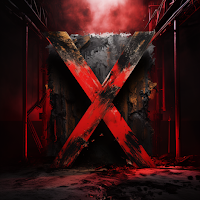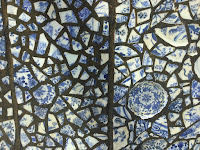A useful summary of a review article is:
National Institute for Health and Care Research (NIHR). (2023). How to tackle vaccine misinformation: what works and what doesn’t? https://evidence.nihr.ac.uk/alert/how-to-tackle-vaccine-misinformation-what-works-and-what-doesnt/
This is a summary of
Whitehead, H.S. et al. (2023). A systematic review of communication interventions for countering vaccine misinformation. Vaccine, 41, 1018–1034. https://www.sciencedirect.com/science/article/pii/S0264410X22015936
Thanks to Pam McKinney for the link.
Photo by Sheila Webber: the cherries the birds didn't get, June 2023
Curating information literacy stories from around the world since 2005 - - - Stories identified, chosen and written by humans!
Monday, July 31, 2023
Countering vaccine misinformation
Sunday, July 30, 2023
A spot of something
Drucker, J. (2023, 27 July). Why did Elon rebrand Twitter as ‘X’? The mystery. The Washington Post. https://www.washingtonpost.com/opinions/2023/07/27/elon-musk-twitter-x-meaning/ - an examination of the meanings and associations of the letter X.
Montague-Hellen, B. (2023, 25 July). Will you need to be a librarian to find the new Twitter in Google? https://www.cilip.org.uk/news/646705/Will-you-need-to-be-a-librarian-to-find-the-new-twitter-in-google.htm- pointing out how the Twitter rebrand makes the product a lot less findableImage by Sheila Webber with Midjourney AI
Friday, July 28, 2023
New articles: BRAID model to share accurate information; misinformation; ChatGPT as medical chatbot
Stephenson-Hunter, C., Yusuf, Y., Larson, R., Campanella, J. & Gutnick D. (2023). What matters to us: Bridging research and accurate information through dialogue (BRAID) to build community trust and cultivate vaccine confidence. Preventive Medicine Reports, 102253. https://doi.org/10.1016/j.pmedr.2023.102253
"The findings highlight the influence of factors, such as health communication, on trust (or lack thereof) and vaccine intention. They also reinforce that creating safe spaces for dialogue and listening and responding to community concerns in real time are effective trust-building strategies. The BRAID model fostered open discussion about the factors that influence vaccine uptake and empowered participants to share accurate information with their community. Our experience suggests that the model can be adapted to address many public health issues."
Yamaguchi, S. and Tanihara, T. (2023). Relationship between misinformation spreading behaviour and true/false judgments and literacy: an empirical analysis of COVID-19 vaccine and political misinformation in Japan. Global Knowledge, Memory and Communication [early online publication]. https://doi.org/10.1108/GKMC-12-2022-0287
Chow, J. C. L., Sanders, L., & Li, K. (2023). Impact of ChatGPT on medical chatbots as a disruptive technology. Frontiers in artificial intelligence, 6, 1166014. https://doi.org/10.3389/frai.2023.1166014 "As researchers studying the design and creation of medical chatbots, we expect that ChatGPT will be able to evolve into a reliable and practical medical chatbot. Here, we would like to explore some obstacles to the achievement of this goal and potential solutions to them, by considering ChatGPT as a disruptive technology."
Photo by Sheila Webber: First cherries, last gooseberies, June 2023
Thursday, July 27, 2023
Call for contributions #DLFteach Toolkit: Critical Digital Literacy
The DLF Digital Library Pedagogy group https://wiki.diglib.org/Pedagogy invites contributions to Volume 4 of the #DLFteach Toolkit which has the theme Critical Digital Literacy. The existing toolkits are at https://dlfteach.pubpub.org/dlfteach-toolkits "an open access resource providing peer-reviewed lesson plans and concrete instructional strategies." Proposals are due by 8 September 8 2023.
"Volume 4 of the #DLFteach Toolkit will be a resource for information professionals and faculty partners who wish to engage critical digital literacy concepts in their teaching. It will include adaptable lesson plans and learning objects that help learners develop the skills necessary to consume and create information in a digital landscape, as well as the habits of mind necessary to understand and critique information systems and their underlying power structures. By encouraging both skills-based outcomes and contextual thinking, Volume 4 of the Toolkit will make learners aware of the inequities and structural biases of many digital tools, and help them enact alternative approaches."
More info at https://dlfteach.pubpub.org/dlfteach-toolkit-4-cfp
Volume 1 of the toolkit is Lesson Plans for Digital Library Instruction; Volume 2 is Lesson Plans on Immersive Pedagogy; Volume 3 is Lesson Plans for Literacy and Competency Driven Digital Scholarship Instruction
Photo by Sheila Webber: white hydrangea, July 2023
Wednesday, July 26, 2023
New book: Critical Librarianship and Pedagogy Symposium
Mery, Y. & Sanchez, A. (Eds) (2023). The Critical Librarianship and Pedagogy Symposium: Reflections, Revisions, and New Work. ACRL. US $65.00, ALA Members US $58.50. ISBN 978-0-8389-3952-9.
It "collects expanded and updated presentations given at the Critical Librarianship and Pedagogy Symposium (CLAPS)". The sections are: Part I: Critical Pedagogies in the Classroom; Part II: Feminist Library Practices; Part III: The Labor of Librarianship; Part IV: Practices of Care; Part V: Community Archives
More details at: https://www.alastore.ala.org/content/critical-librarianship-and-pedagogy-symposium-reflections-revisions-and-new-work
Photo by Sheila Webber: hydrangea, July 2023
Tuesday, July 25, 2023
Call for proposals: LOEX fall focus conference
USA's LOEX is holding an online-only Fall Focus conference. The conference will be held on 2-3 days, either 8-10 November 8-10 or 13-15 November (date to be finalised in September). It is "an information literacy and library instruction conference focused on: (1) Welcoming and Engaging Students New to Your Institution and (2) Building and Sustaining a Supportive Professional Community at Your Library"
"We chose these two topic areas as we believe both are relevant to where we are at now: students are entering college or transitioning to new institutions having experienced a level of disruption & transformation that exceeds anything in living memory and thus need additional assistance & revised programming to make sure their first year at their new institution are worthwhile and fruitful. But it's not just about students—everyone has been through a lot and librarians are no exception; so how are we supporting ourselves and our colleagues to make sure we are not just surviving but thriving? We invite you to submit a proposal on either of these focuses."
You can propose a 50 minute presentation or a 7 minute lightning talk. Deadline for proposals is 31 August 2023.
More details at https://loexfallfocus.org/proposals/
Photo by Sheila Webber: rose garden pavilion, June 2023
Monday, July 24, 2023
Using comics for information literacy; Identity development
One new article & one interesting blog post from last year.
Paterson, S. & White Gamtso. (2023). Interrogating representations of transgressive women: Using critical information literacy and comic books in the Shakespeare classroom. Art Libraries Journal, 48(3), 80 - 89 https://www.cambridge.org/core/journals/art-libraries-journal/article/interrogating-representations-of-transgressive-women-using-critical-information-literacy-and-comic-books-in-the-shakespeare-classroom/302B8477C3ACC663B943AB7C7BA83E1E
librarianjsmith. (2022, 9 July). Information Literacy as a Form of Identity Development. [blog post] PALA Pennsylvania Library Association's College & Research Division https://crdpala.org/2022/07/09/information-literacy-as-a-form-of-identity-development/
Image by Sheila Webber using Midjourney AI, prompt was: shakespeare, midsummer nights dream, in the style of Lotte Reiniger --ar 9:4
Sunday, July 23, 2023
#ImALifelongLearner
Friday, July 21, 2023
Call for Chapters: Teaching Information Literacy in Political Science, Public Affairs, and International Studies
"Liaison librarians to political science, public affairs, international studies, and related fields face special challenges in adapting traditional information literacy practices to the dynamic topics and unique resources of their disciplines. Gray literature, government data, policy documents, social media, and more must be addressed alongside conventional scholarly publications. The interdisciplinary nature of politics, policy, and international studies courses offers many opportunities for active and applied learning but also requires additional considerations for locating and evaluating information."
More detail at http://librarywriting.blogspot.com/2023/06/call-for-chapters-teaching-information.html
Photo by Sheila Webber: yellow roses with dark stamens, June 2023
Thursday, July 20, 2023
Book: Instructional Identities and Information Literacy
Hess, A.N. (Ed) (2023). Instructional Identities and Information Literacy. ACRL. (3-Volume Set: Transforming Ourselves; Transforming Our Programs, Institutions, and Profession; Transforming Student Learning, Information Seeking, and Experiences) Cost: US $160.00; or US $144 to ALA members. 978-0-8389-3968-0
More information at https://www.alastore.ala.org/content/instructional-identities-and-information-literacy-3-volume-set including list of chapters and authors.
This is an article from 2020 by the editor (Hess) on the same topic https://pdxscholar.library.pdx.edu/comminfolit/vol14/iss2/1/
Photo by Sheila Webber: Hydrangeas, July 2023
Wednesday, July 19, 2023
Online courses: designing a credit course; misinformation
Upcoming online courses from Library Juice Academy in August 2023 include:
- Developing a Credit-Bearing Information Literacy Course. Runs 7 August - 3 September 2023. Leader is Jessica Critten, cost is US$200.00. "This class will focus on designing (or redesigning) a semester-long information literacy course, but it may also provide insight that could be useful in integrating information literacy into existing disciplinary and general education courses." https://libraryjuiceacademy.com/shop/course/125-developing-credit-bearing-information-literacy-course/
- Addressing Misinformation in Libraries: Resources and Strategies. Runs 7 August - 3 September 2023. Leader is Sarah Morris, cost is US$200. "This course introduces librarians to the topic of misinformation and provides them with resources, definitions, approaches, and strategies they can employ in their institutions to address the topic of misinformation with patrons." https://libraryjuiceacademy.com/shop/course/190-addressing-misinformation-in-libraries/
Tuesday, July 18, 2023
Global Media and Information Literacy Youth Hackathon #MILClicks
The Fifth Global Media and Information Literacy Youth Hackathon is now open for registration. The theme is: Youth powering media and information literacy in digital spaces. This is in conjunction with the Global Media and Information Literacy week main conference (to be held in Jordan, 23-25 October 2023).
"The participating teams will design innovative and creative solutions to one of the following three challenges:
- Promoting Media and Information Literacy in Digital Spaces
- Youth Championing Media and Information Literacy in Cities
- Integrating Media and Information Literacy in Youth Organizations to tackle potentially harmful content online, including disinformation and hate speech
The solution categories are: Games; Applications/Websites; Radio programmes/Podcasts; Creative community-based interventions (non-technology focused); other
The hackathon is open to all youth: no previous computer science or coding background is required. All registered participants will be provided with mentoring and online resources on MIL and coding.
The winning team will gain the opportunity to present their project during the Global MIL Week 2023 in Jordan: airfare and hotel expenses will be covered for the winners.
More information at https://www.unesco.org/en/media-information-literacy-week/fifth-youth-hackathon
Monday, July 17, 2023
#FOSIL podcast
Photo by Sheila Webber: fountain wall in the rose garden, Gothenburg, June 2023
Friday, July 14, 2023
Questionnaire about use of ChatGPT in libraries
Go to http://fiu.qualtrics.com/jfe/form/SV_0NFTRbaI5FjITem
Image by Sheila Webber with Midjourney: prompt was information literacy, teaching, librarians, generative AI, a landscape of flowers and trees
Thursday, July 13, 2023
Green Libraries through a children's literature festival #cilipconf23
I'm still at the CILIP 2023 conference in Birmingham, UK at a session on Climate change and climate justice, and here is a quick liveblog. Adele Karwat (Service Manager, Libraries & Archives, Blackburn Central Library) started by giving an overview of the Blackburn with Darwen authority - for example 21.3% of the population is under 15. The authority has a Climate Emergency Action Plan, and library input has tended to be around everyday things, such as using electricity. They saw their annual Children's Literature Festival as an opportunity to do something more impactful.
Karwat highlighted the contribution of author & poet Christina Gabbitas to the festival (including a Save us from plastic poem). They used the CILIP Green Library fund, and they involved other authors in the festival, reaching over 2000 children. As an example, BB Taylor used Morris the Millipede to get across messages about environmental impact and what you can do to help creatures survive. They had input from the Council on themes to do with recylcing etc. There was also a competition to do with children writing about saving the planet.
The project enabled a lot of positive outcomes including: shared family learning; enabling book gifting; being an acknowledged distibution point for environmental knowledge; raising the library profile; having good partnership with the school, Council etc; empowering children. Thus it developed the environmental literacy of the library, and also contributed to the Councils's strategic goals. There were of course costs, so the CILIP funding was very useful. This is a video of primary school children reciting Gabbitas' poem Save us from plastic https://youtu.be/k90z7cNBAQ8
Another useful link is CILIP's Green Libraries Manifesto
Image by Sheila Webber with Midjourney, I gave up trying to get an image using a "library" prompt as Midjourney's iamge of libraries is so conventional
Wednesday, July 12, 2023
Data and #AI #CILIPConf23
I'm attaneding the CILIP 2023 conference in Birmingham, UK, together with colleague Dr John Israilidis and five of our current Masters students. I'm spending a lot of tme on our Information School exhibition stand, but also taking in some sessions for some liveblogging. The first was the session on Data and AI. My colleague Dr Andrew Cox was the first speaker. His talk included looking at some of the ethical issues, and identifying the role of information professionals. He said there were some things we should worry about - such as the power of big tech companies, information overload, biased information. However there were also reasons to be optimistic - for example applying our exisiting professional skills in understanding of data and searching. Cox highlighted the Library strategy and AI post https://nationalcentreforai.jiscinvolve.org/wp/2023/06/05/library-strategy-and-artificial-intelligence/ which reports on an event organised by the University of Sheffield Information School, and links to a paper you can comment on: Draft for comment: Developing a library strategic response to Artificial Intelligence: Working paper
Then (via a video) Aaron Tay talked about AI and search. He thought that generative AI would improve relevancy, generation of direct answers, and extraction of information. He pointed that algorithms were already used extensively to drive search engine results (as this was increasingly the case, then search results would become less predictable). He said that "ChatGPT alone can't cut it" because it isn't possible to check the source information, and also the training data isn't fully up to date. A solution is "Retriever augemented generation" - retrieving good quality information and feeding the AI the sources, for it to generate an answer. Tay said that Elicit is an academic site that uses this technique. A 2nd combination is ChatGPT and the Scholar.io plugin. A disturbing result from one piece of research he mentioned was that people seemed to trust resultant pieces of work that were not really accurate (e.g. the references inserted dinto the text didn't always support the information they claimed to support).
The last panellist was Sam Thomas talking on AI in a healthcare context. He pointed out that clinicians were already using AI extensively in clinical practice (e.g. diagnosis) and administration. He thought that it was important to engage the library team in discussing ideas, engaging positively in finding out about AI and how it could be used, identifying training and development opportunities, and considering the ethical implications of using AI.Thomas thought it was important to "focus on your context" - seek out information that can help you understand how AI could be used by stakeholders (what needs might it fulfill, how and why could they use it). He stressed that it should be embedded into what you were already doing (e.g.in teaching literature searching, evidence use). Thomas saw potential for time saving - literature searching (generating search terms; simple explanations etc), writing support, ideas generation, getting initial insights into data that you need to analyse. His final messages were: engage your team; focus on your users; use AI yourself.
Photo by Sheila Webber: fruit shots at the conference!Tuesday, July 11, 2023
New articles: Sustainability; Writing tutors; Designing a toolkit
- Constructing and revising a user-centered curricular toolkit: Supporting faculty with inclusive design by Lizzy Borges, Faith Rusk
- It’s not just us: Sharing the ACRL Framework with writing tutors by Bria Sinnott, Elisabeth B. White
- Planning for sustainability: Articulating efforts toward the United Nations Sustainable Development Goals by Sarah K. Tribelhorn
Go to https://crln.acrl.org/index.php/crlnews/issue/view/1641/showToc
Photo by Sheila Webber: floribunda and bee, Gothenburg, June 2023
Monday, July 10, 2023
New articles: Misinformation; One-shots
The latest issue (vol 84 no 4) of open access College and Research Libraries includes:
- Librarian Perspectives on Misinformation: A Follow-Up and Comparative Study by Laura Saunders. "While academic librarians have been quick to respond to the crisis of misinformation through information literacy instruction and tool development, little research exists on the extent to which they are teaching news literacy skills in the classroom. This study explores academic librarians’ perspectives on misinformation and whether they are addressing misinformation in their teaching. The results are compared to a previous study on faculty perspectives. Findings show that librarians are concerned about misinformation and are integrating it into their instruction."
- Reflection and Transfer Learning in the One-Shot: Demonstrating Student Learning by Karleigh Riesen, Sara Maurice Whitver. "This study examines the use of reflection as a learning theory within the one-shot library instruction classroom to facilitate metacognition and transfer learning. Through the analysis of student work, researchers demonstrate that students connect past skills with current learning and are able to assess what they know and what they need."
Go to https://crl.acrl.org/index.php/crl/issue/view/1642/showToc
Photo by Sheila Webber: berries at the farmers market, July 2023
Sunday, July 09, 2023
SDGs and libraries
3 free webinars to do with the Sustanable Development Goals (and of course the SDGs include goals to do with information)
(1) Next (on 11 July 2023 at 1.30pm-3pm UK time) in a series run by IFLA’s Management of Library Associations Section (MLAS) in collaboration with the New Professionals Special Interest Group (NPSIG), the Environment, Sustainability and Libraries Section (ENSULIB), and the IFLA Regional Divisions: Sustainable Development Goals and Library Associations: Europe See https://www.ifla.org/events/sustainable-development-goals-and-library-associations-europe-regional-division/
(2) Also on 11 July 2023 (at 4pm UK time) Indigenous Agency and Abundance: Impacts of Indigenous librarians and libraries on Indigenous communities, health, and inclusion and the 12th International Indigenous Librarians' Forum (speakers Loriene Roy (Anishinabe) and Hauʻolihiwahiwa Moniz) presented by The American Library Association’s United Nations SDGs Subcommittee in collaboration with IFLA during the United Nations High Level Political Forum 2023. Registration https://ala-events.zoom.us/webinar/register/WN_byO6W3vpR2Ob5mmgoHXm-g
(3) On 18 July 2023 at 2pm UK time Libraries and women empowerment at the intersection of development, again presented by The American Library Association’s United Nations SDGs Subcommittee. Speakers are
Emily Drabinski, Sara Benson, Robin Kear, Bohyun Kim and Zena George "in a lively discussion grounded in the UN SDG 3 Gender Equality and the UN SDG 10 Reduced Inequalities" Registration at https://ala-events.zoom.us/webinar/register/WN_n9JUyLmkRq2ECA1_TdypYw
Saturday, July 08, 2023
Looking for Information
There is a new edition of the classic work summarising research into information behaviour, which is an essential for anyone researching information seeking, encountering, use etc.
Given, L., Case, D. & Willson, R. (2023). Looking for Information: Examining Research on How People Engage with Information (5th ed.) Emerald Publishing. ISBN-13 978-1803824246 https://books.emeraldinsight.com/book/detail/looking-for-information/?k=9781803824246
Photo by Sheila Webber: Green plant in Gothenburg, June 2023
Friday, July 07, 2023
The right to freedom of opinion and expression
On July 2023 at the 53rd session of the Human Rights Council, in Geneva (Switzerland), there was a Panel discussion on the role of digital, media and information literacy in the promotion and enjoyment of the right to freedom of opinion and expression. There is a transcript of the introduction from Nada Al-Nashif United Nations Deputy High Commissioner for Human Rights, including the words "As noted by the UN Secretary-General, media and information literacy is critical for building societal resilience and countering disinformation - important in electoral contexts, the COVID 19 pandemic and in crisis situations, but also in the many walks of daily life." - the text is here https://www.ohchr.org/en/statements/2023/07/digital-media-and-information-literacy-are-key-freedoms
There is also a summary of points from each panellist here https://www.ohchr.org/en/news/2023/07/human-rights-council-hears-digital-media-and-information-literacy-programmes-should-be The focus is more on the "digital" and "media" parts, but it is clear that Media and Information Literacy is being acknowledged by all speakers as important.
Thursday, July 06, 2023
Media and Information Literacy for Teachers #MILClicks
UNESCO has updated its Media and Information Literacy for Teachers site by putting online the content (all 14 modules) of its substantial MIL Curriculum for teachers and learners. Each module has a short introduction, and then each unit in the module has a separate page. It is just the text (I haven't looked through systematically, but I'm not sure all the resources/references are linked), but since the original was a 400 page document it is useful to have it in a different format, so that you would be able (for example) to link to and work from a particular module or unit. There is a "Share a resource" section. https://www.unesco.org/mil4teachers/en
Photo by Sheila Webber: bee landed on rose, June 2023Tuesday, July 04, 2023
Generative AI, prompts and more
A few AI-related links I've stockpiled:
1. From the IFLA blog, ChatGPT in Libraries? A Discussion (14 May 2023) with Dr. Almuth Gastinger; Rajen Munoo; Dr. Leo S. Lo; Dr. Ray Pu - go to https://blogs.ifla.org/cpdwl/2023/05/14/chatgpt-in-libraries-a-discussion/
2. Critical AI Literacy for Educators: Resources curated by Kathryn Conrad and Sean Kamperman and handily displayed on a padlet https://padlet.com/kathrynconrad/critical-ai-literacy-for-educators-umh8r80mykrw0d68
3. The Awesome ChatGPT Prompts repository "a collection of prompt examples to be used with the ChatGPT model" curated by someone promoting their book, but with prompts from various people, all starting "Act as a ...." (e.g. Act as a Football Commentator; Act as a Stand-up Comedian) - go to https://prompts.chat/
Image by Sheila Webber with Midjourney AI, prompt opportunities for libraries, generative AI, future, abstract in vibrant colours - and showing once again that Midjourney has very traditional ideas about what a library isMonday, July 03, 2023
Presentations from @WILUconference
Presentations from the WILU (Canadian information literacy) 2023 conference are available, with lots of interesting ppts. Examples:
- Gearing up for Instruction: Advocating for and Incorporating Information Literacy into a First Year Engineering Program Redesign;
- Listening Beyond Silence: Using participatory research to inform library instruction for students from racial and ethnic groups and backgrounds
Go to https://escholarship.mcgill.ca/catalog?f%5Brtype_sim%5D%5B%5D=Presentation&locale=en
Photo by Sheila Webber: Maypole by Elin Wennerbring for Midsummer, Gothenburg, June 2023
Saturday, July 01, 2023
Salt Lake Community College Libraries guide on AI and Information Literacy
Image by Sheila Webber using Midjourney AI: prompt libguide, AI, information literacy, mysterious
























